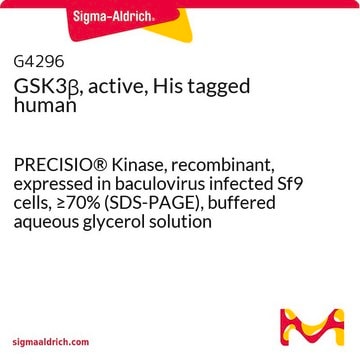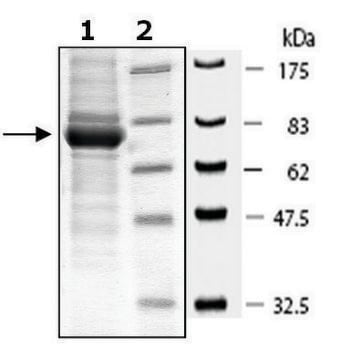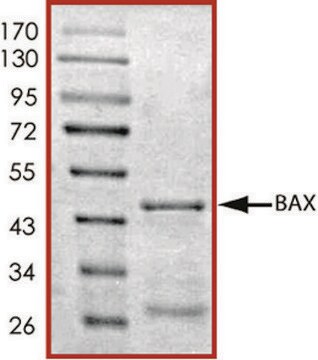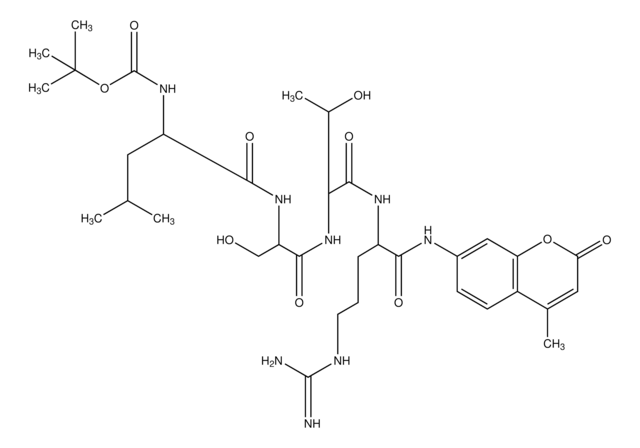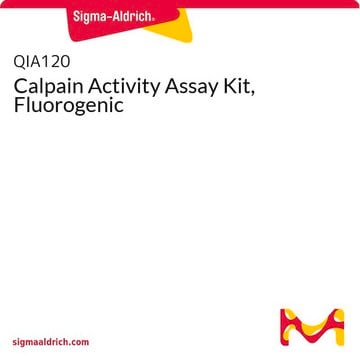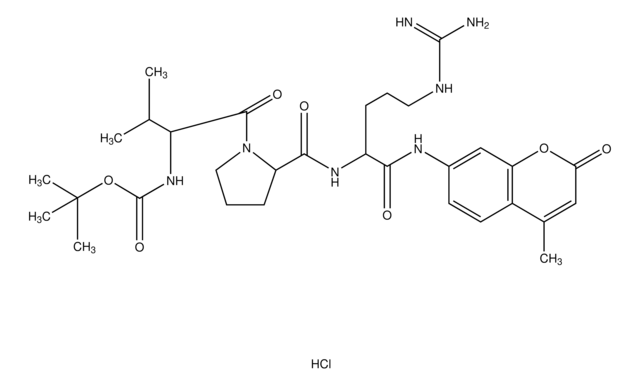SRP0356
GSK3β active human
recombinant, expressed in baculovirus infected Sf9 cells, ≥80% (SDS-PAGE)
Szinonimák:
glycogen synthase kinase 3 beta
About This Item
Javasolt termékek
biológiai forrás
human
rekombináns
expressed in baculovirus infected Sf9 cells
Teszt
≥80% (SDS-PAGE)
Forma
aqueous solution
specifikus aktivitás
≥500 pmol/min-μg
molekulatömeg
73 kDa
kiszerelés
pkg of 10 μg
technika/technikák
activity assay: suitable
inhibition assay: suitable
NCBI elérési szám
UniProt elérési szám
kiszállítva
dry ice
tárolási hőmérséklet
−70°C
Géninformáció
human ... GSK3B(2932)
Általános leírás
Alkalmazás
Biokémiai/fiziológiai hatások
Tárolási osztály kódja
12 - Non Combustible Liquids
WGK
WGK 1
Lobbanási pont (F)
Not applicable
Lobbanási pont (C)
Not applicable
Válasszon a legfrissebb verziók közül:
Analitikai tanúsítványok (COA)
Nem találja a megfelelő verziót?
Ha egy adott verzióra van szüksége, a tétel- vagy cikkszám alapján rákereshet egy adott tanúsítványra.
Már rendelkezik ezzel a termékkel?
Az Ön által nemrégiben megvásárolt termékekre vonatkozó dokumentumokat a Dokumentumtárban találja.
Tudóscsoportunk valamennyi kutatási területen rendelkezik tapasztalattal, beleértve az élettudományt, az anyagtudományt, a kémiai szintézist, a kromatográfiát, az analitikát és még sok más területet.
Lépjen kapcsolatba a szaktanácsadással
